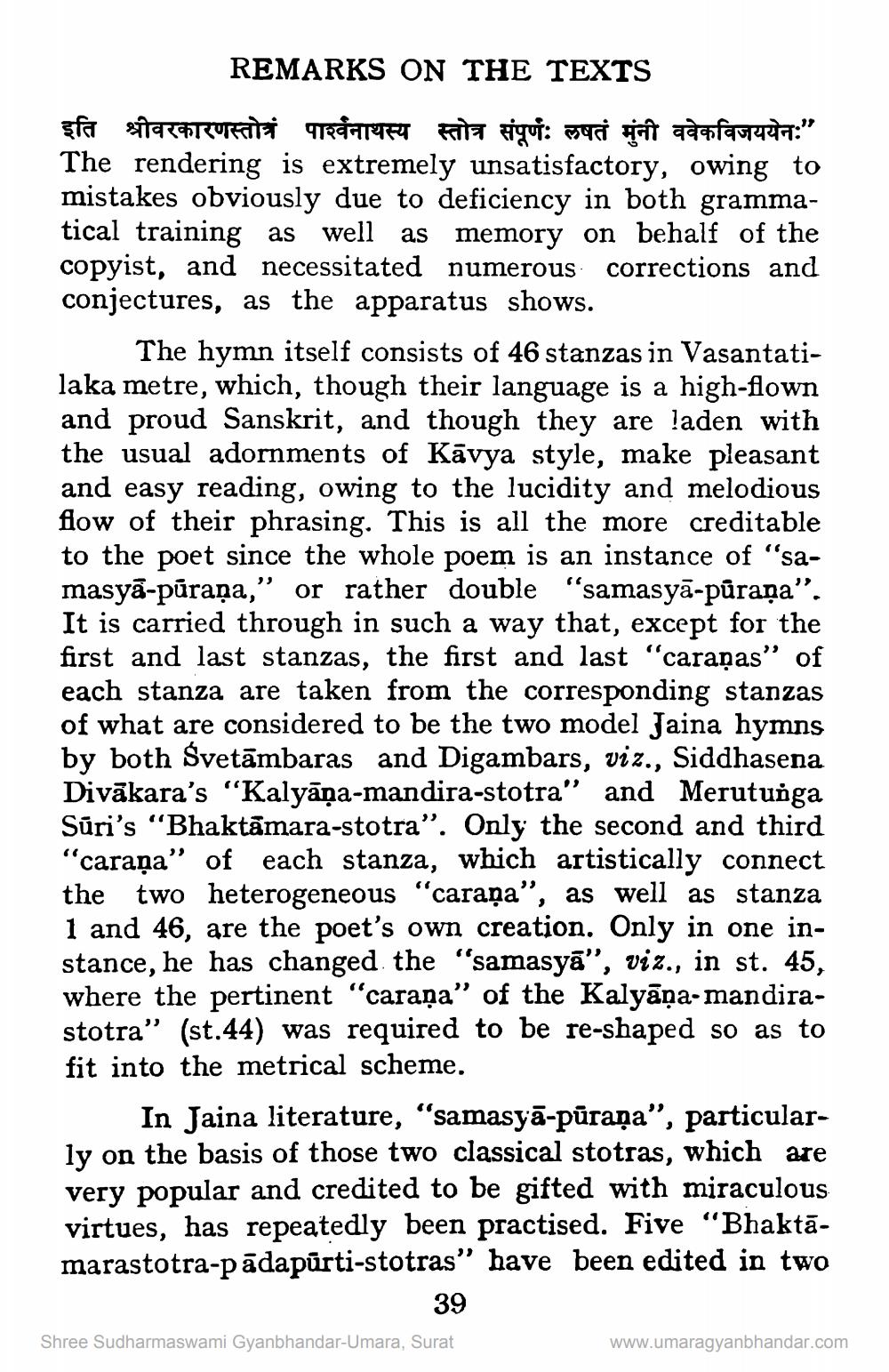________________
REMARKS ON THE TEXTS इति श्रीवरकारणस्तोत्रं पार्श्वनाथस्य स्तोत्र संपूर्णः लषतं मुंनी ववेकविजययेनः" The rendering is extremely unsatisfactory, owing to mistakes obviously due to deficiency in both grammatical training as well as memory on behalf of the copyist, and necessitated numerous corrections and conjectures, as the apparatus shows.
The hymn itself consists of 46 stanzas in Vasantatilaka metre, which, though their language is a high-flown and proud Sanskrit, and though they are laden with the usual adornments of Kāvya style, make pleasant and easy reading, owing to the lucidity and melodious flow of their phrasing. This is all the more creditable to the poet since the whole poem is an instance of "samasya-pūraņa,” or rather double "samasyā-půraña". It is carried through in such a way that, except for the first and last stanzas, the first and last "caraṇas” of each stanza are taken from the corresponding stanzas of what are considered to be the two model Jaina hymns by both Svetāmbaras and Digambars, viz., Siddhasena Divākara's "Kalyāna-mandira-stotra" and Merutunga Sūri's “Bhaktāmara-stotra". Only the second and third "caraña" of each stanza, which artistically connect the two heterogeneous "caraņa", as well as stanza 1 and 46, are the poet's own creation. Only in one instance, he has changed the "samasyā", viz., in st. 45, where the pertinent "caraña” of the Kalyāņa-mandirastotra" (st.44) was required to be re-shaped so as to fit into the metrical scheme.
In Jaina literature, "samasyā-pūraņa", particularly on the basis of those two classical stotras, which are very popular and credited to be gifted with miraculous virtues, has repeatedly been practised. Five "Bhaktāmarastotra-pădapūrti-stotras” have been edited in two
39
Shree Sudharmaswami Gyanbhandar-Umara, Surat
www.umaragyanbhandar.com




